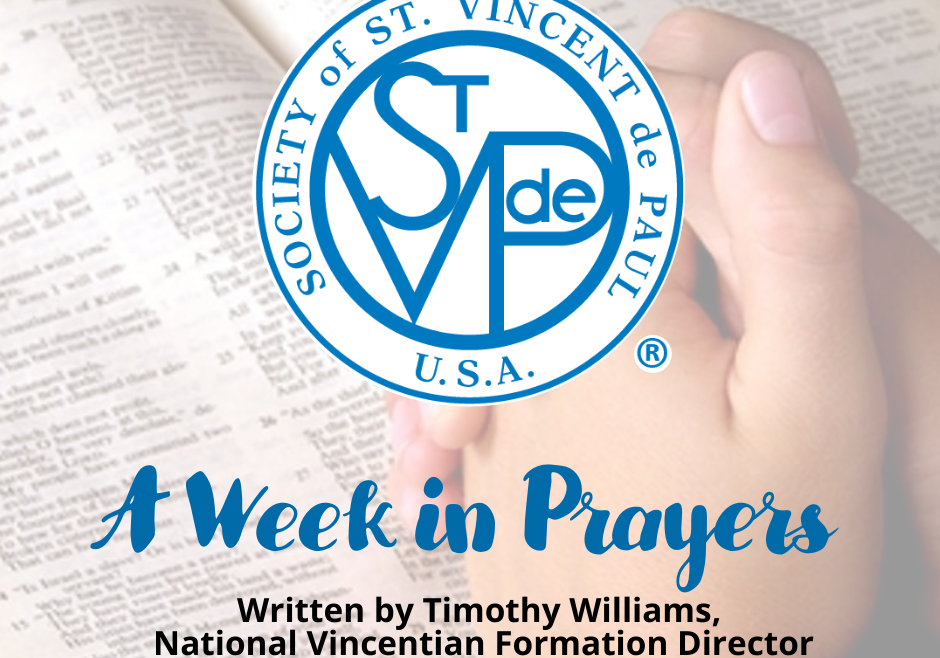The word “spirit” has its roots in the Latin verb spīrāre, meaning “to breathe.” If we think, then, of the Holy Spirit as the breath of God, it seems easier to open ourselves to that spirit, to the wind upon the waters, and the breath of life. When we feel ourselves filled and moved by the Holy Spirit, we are literally inspired.
The founders of the Vincentian Family received a special grace from God, a charism. For St. Louise, her inspiration began following a period of great doubts, a dark night of the soul in which she began to doubt even the immortality of her soul. On the Feast of Pentecost, 1623, which commemorates the descent of the Spirit on the apostles, Louise prayed and felt herself suddenly relieved of all her doubts. [SWLM A.2]
This experience was so powerful that she wrote down all that she believed the Holy Spirit had spoken to her and carried that piece of paper, the account of her lumière (“light”) folded in her pocket for the rest of her life. It remains in the Motherhouse of the Daughters of Charity to this day.
The great peace that she instantly felt was threefold: first, that she would receive a new Spiritual Director (which would turn out to be St. Vincent); second, that she would one day fulfill her “first vow” to live a consecrated life in service of the poor; and third, that as long as she had her belief in God, the rest would be assured.
Importantly, nothing really changed in her daily life. She wouldn’t meet Vincent for another two years, the founding of the Daughters of Charity, in which she would live her religious vocation, was eight years away. In other words, she received a great interior peace solely through the movement of the spirit; not through an external event or change in her circumstances. Nothing that had been troubling her was resolved, but her heart had been changed.
The light she carried with her from that day forward helped her to see in the people and events of her life the Providence and Will of God; to further discern her charism – our charism – to serve Jesus in the poor and in each other.
Louise, “aware of [her] own brokenness and need for God’s grace” [Rule, Pt. I, 2.2] opened herself to the working of the Holy Spirit, exactly as we are called to do. Just as we breathe out only in order to breathe in again, we empty ourselves of self not to remain empty, but in order to be filled by God. And to be inspired, we breathe deeply.
Contemplate
How can I be more open to be moved by the Holy Spirit?


